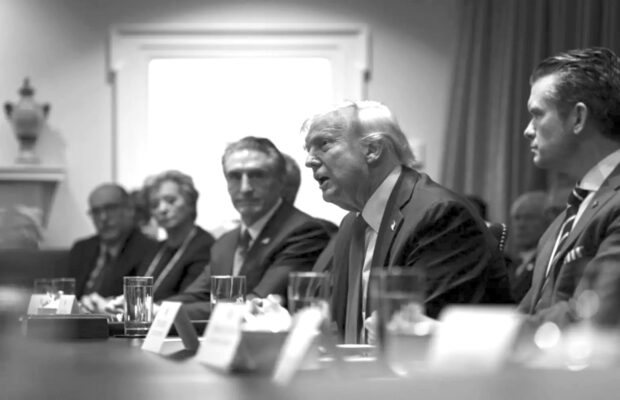Leaked White House text chain signals security concerns

Following Donald Trump’s return to the White House in 2025, an error in communication has drawn attention to the administration’s security practices. In March, National Security Adviser Mike Waltz accidentally added “The Atlantic” editor-in-chief Jeffrey Goldberg to a Signal group chat created to discuss classified U.S. military operations in Yemen. The mistake went unnoticed for days, raising concerns about how the administration handles sensitive information.
The chat, intended for top officials including Vice President JD Vance, Secretary of State Marco Rubio and Secretary of Defense Pete Hegseth, contained details about airstrikes and attack plans in Yemen against Houthi militias. The confusion stemmed from a months-old mistake where Waltz had saved Goldberg’s contact after misidentifying him as a campaign staffer with a similar name during the 2024 election.
Although Goldberg never responded in the chat, he did read several messages before the error was discovered. Once alerted, the White House launched an internal investigation. While Trump was reportedly upset about Goldberg being involved, especially given his criticism of “The Atlantic,” he ultimately chose not to dismiss Waltz. “The Guardian” wrote that according to insiders, Trump was concerned that firing a top aide so early in his term would be seen as a political loss.
The use of Signal, an encrypted messaging app, has come under fire following the incident. While popular for its privacy features, Signal is not approved for top-level government communication. Experts have raised legal concerns, pointing to the possible violation of federal laws such as the Presidential Records Act, which according to “Congress.gov,” states that the United States shall reserve and retain complete ownership, possession and control of all Presidential records.
According to “NBC News,” information about an upcoming U.S. military attack is considered to be classified, which was affirmed by at least four legal experts. However, in response to the matter, Hegseth spoke to several media outlets. “Nobody was texting war plans,” Hegseth said. CIA Director John Ratcliffe supported Hegseth’s statement at a testimony at a Senate Intelligence Committee hearing. “Communications in the Signal message group were entirely permissible and lawful and did not include classified information,” Hegseth said.
Many have stated that the situation has highlighted weaknesses in the administration’s internal systems. The misstep has prompted calls for more secure communication protocols and raised questions about the training and oversight of senior officials. As the Trump Administration moves forward, it faces public pressure to restore confidence in its ability to manage national security.



